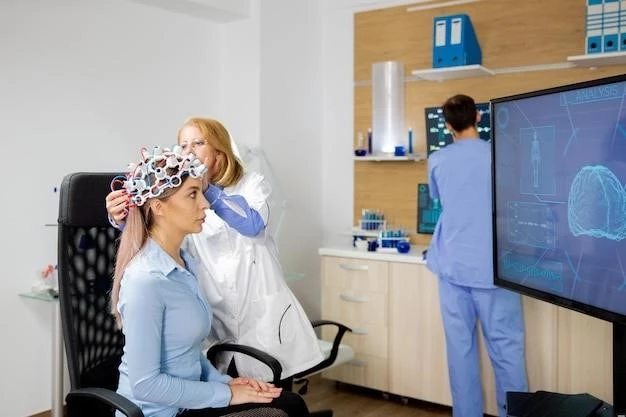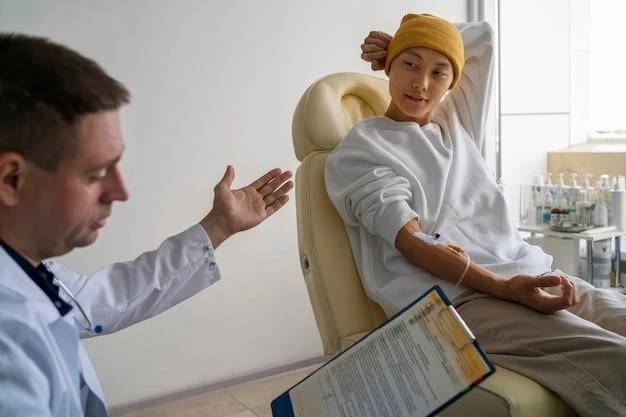Symptoms of Chronic Polyradiculoneuritis
Recognize weakness, pain, numbness, tingling in limbs. Monitor any changes, seek medical advice promptly.
Keep track of symptom development over time. Report any worsening to your healthcare provider for evaluation.
Overview of Symptoms
Recognize the symptoms of chronic polyradiculoneuritis such as muscle weakness, pain, numbness, and tingling in the arms and legs. Keep a symptom journal to track changes and share with your healthcare provider. Be proactive in managing your symptoms to improve your quality of life.
Progression of Symptoms
Monitor the progression of chronic polyradiculoneuritis symptoms closely. Keep a diary of symptom changes and discuss any new developments with your healthcare team. Early detection and intervention are crucial in managing the condition effectively. Stay proactive in addressing symptom progression for optimal care.
Causes of Chronic Polyradiculoneuritis
Understand the role of autoimmune response in this condition. Consult a specialist for detailed information.
Autoimmune Response
Educate yourself about how the immune system targets nerve roots. Follow treatment plans provided by healthcare professionals. Stay informed and proactive in managing the autoimmune aspect of chronic polyradiculoneuritis.
Other Potential Causes
Explore various factors that may contribute to chronic polyradiculoneuritis beyond autoimmune issues. Consult with healthcare providers to investigate underlying causes. Being proactive in identifying potential triggers can aid in personalized treatment approaches.

Treatment Options for Chronic Polyradiculoneuritis
Consult with healthcare providers for appropriate medication options and dosages tailored to your specific needs.
Medications
Follow the prescribed medication regimen diligently. Communicate any side effects to your healthcare team promptly. Stay consistent with your treatment plan for effective management of chronic polyradiculoneuritis symptoms. Regularly review medication efficacy with your healthcare provider.
Physical Therapy
Participate in tailored physical therapy programs to improve strength, flexibility, and mobility. Consistency is key to seeing progress. Communicate any concerns or limitations to your physical therapist for personalized care. Regular physical activity can positively impact your condition.
Diagnosis of Chronic Polyradiculoneuritis
Seek thorough clinical assessments from specialists for accurate diagnosis and personalized treatment plans.
Clinical Evaluation
Undergo comprehensive physical and neurological exams to assess symptoms and nerve function. Provide detailed medical history to aid in accurate diagnosis. Collaborate with healthcare professionals to determine the best course of action for managing chronic polyradiculoneuritis effectively. Regular check-ups are vital for monitoring progress.
Diagnostic Tests
Undergo nerve conduction studies, electromyography, blood tests, and imaging scans to aid in diagnosing chronic polyradiculoneuritis. Follow recommendations from healthcare providers for accurate assessments. Stay informed about the diagnostic process and collaborate with your medical team to determine the most suitable treatment plan based on test results. Regular monitoring is crucial for managing the condition effectively.
Prognosis for Chronic Polyradiculoneuritis
Individual cases vary; follow personalized treatment plans and lifestyle adjustments for long-term management.
Variable Course
Chronic polyradiculoneuritis can have unpredictable outcomes. Stay informed, adhere to treatment plans, and communicate openly with healthcare providers. Adapt lifestyle accordingly with knowledge that individual responses to the condition may differ. Regular monitoring and adjustments can help manage the condition effectively over time.
Long-Term Outlook
Focus on maintaining a positive mindset for long-term management of chronic polyradiculoneuritis. Engage in regular medical follow-ups and adhere to treatment recommendations. Embrace lifestyle changes that support your well-being and consult healthcare professionals for any concerns. Stay informed and proactive in managing the condition to improve your overall outlook and quality of life.
Management of Chronic Polyradiculoneuritis
Collaborate with various specialists to customize a holistic care plan for optimal outcomes.
Multidisciplinary Approach
Engage with neurologists, physical therapists, and mental health professionals for comprehensive care. Coordinate treatments, therapies, and lifestyle adjustments to address various aspects of chronic polyradiculoneuritis. Regular communication and teamwork among specialists can lead to a more effective management approach tailored to your individual needs.
Lifestyle Modifications
Implement regular exercise, balanced nutrition, and stress management techniques to support overall well-being. Prioritize adequate rest and listen to your body’s signals. Engage in activities you enjoy and seek social support. Stay informed about your condition and maintain a positive outlook. Consult with healthcare providers for guidance on lifestyle adjustments that can enhance your quality of life while managing chronic polyradiculoneuritis.
Research Updates on Chronic Polyradiculoneuritis
Stay informed about the latest research findings to better understand this condition and potential treatment advancements.
Current Studies
Explore ongoing research into the causes and potential treatments for chronic polyradiculoneuritis. Stay engaged with medical literature and clinical trials for emerging therapies. Discuss participation in research studies with healthcare providers for access to cutting-edge advancements. Being informed and involved can contribute to shaping future management strategies and outcomes for the condition.
Future Directions
Look forward to upcoming research focusing on new treatments and management strategies for chronic polyradiculoneuritis. Stay connected with healthcare providers and advocacy groups to access innovative approaches. Consider contributing to patient registries or research initiatives to drive progress in understanding and addressing this condition. Embracing future developments can provide hope for improved outcomes in the management of chronic polyradiculoneuritis.
Lifestyle Tips for Chronic Polyradiculoneuritis
Implement stress-reduction techniques, maintain a healthy diet, regular exercise, and get enough rest for better symptom management.
Self-Care Practices
Focus on managing stress through relaxation techniques. Eat a balanced diet, engage in gentle exercises, and prioritize adequate sleep. Monitor symptom triggers and adjust activities accordingly. Practice self-compassion and seek support when needed. Developing a self-care routine can aid in managing chronic polyradiculoneuritis effectively and improving overall well-being.
Emotional Support
Seek emotional support from loved ones, support groups, or mental health professionals. Share your feelings and concerns openly. Practice mindfulness and relaxation techniques to manage anxiety. Remember that it’s okay to seek help. Emotional well-being is essential in coping with chronic polyradiculoneuritis. Take care of your mental health alongside physical aspects for overall wellness.
